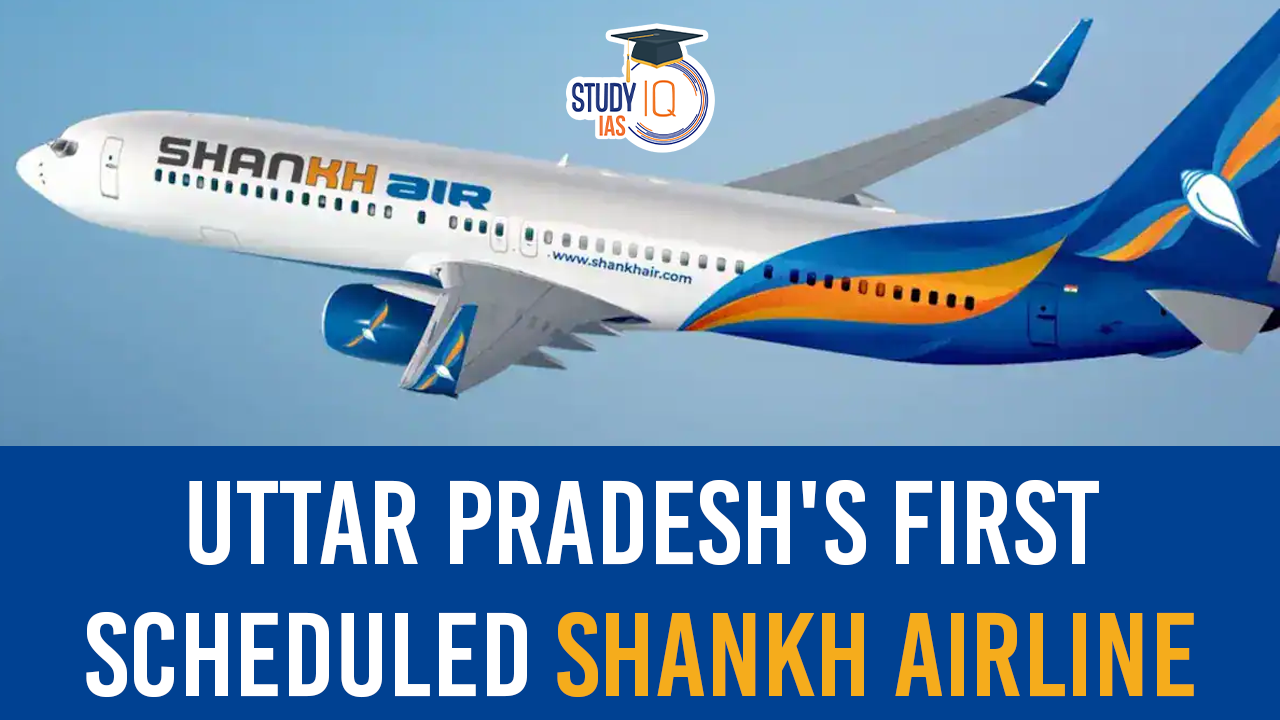Table of Contents
Shankh Air, the first scheduled airline from Uttar Pradesh, has received a major boost after obtaining a No Objection Certificate (NOC) from the Union Ministry of Civil Aviation. This development marks a significant milestone in the Indian aviation industry. Shankh Air is poised to begin operations soon, focusing on enhancing regional connectivity, especially from Noida International Airport and Lucknow. However, before Shankh Air can start flying, it must secure clearance from the Directorate General of Civil Aviation (DGCA), the primary aviation regulator in India.
About Shankh Air
Shankh Air is a new full-service domestic airline owned by Shankh Aviation Private Limited, spearheaded by entrepreneur Sharvan Kumar Vishwakarma. It aims to revolutionize air travel in Uttar Pradesh and India by bridging the gap in underserved markets with high demand for direct flights. As the first scheduled airline from Uttar Pradesh, Shankh Air plans to connect key cities across India, offering both inter- and intra-state routes.
Key Features:
- Operational Hubs: Shankh Air’s primary hubs will be Noida International Airport and Lucknow, ensuring enhanced connectivity in northern India, particularly for the Delhi-NCR region and surrounding areas.
- Fleet: The airline will operate with a fleet of Boeing 737-800NG narrow-body aircraft, known for their fuel efficiency, reliability, and suitability for both domestic and medium-haul international flights.
- Full-Service Airline: Shankh Air will operate as a full-service carrier, offering a range of premium services, competitive pricing, and a two-class product—business and economy.
- Competitive Pricing: While maintaining high standards of service, Shankh Air plans to offer affordable prices to attract price-sensitive travelers, a key differentiator from low-cost carriers.
Regulatory Approvals and Challenges
Although Shankh Air has obtained the NOC from the Civil Aviation Ministry, it is still required to secure clearance from the Directorate General of Civil Aviation (DGCA) before commencing its commercial flight operations. The airline must comply with stringent safety, financial, and operational standards, as prescribed by the DGCA.
Additionally, the Civil Aviation Ministry has emphasized that the airline must follow regulations related to Foreign Direct Investment (FDI) and the Securities and Exchange Board of India (SEBI), ensuring transparency and adherence to India’s regulatory frameworks.
Strategic Vision: Shankh Air’s Focus on Regional Connectivity
Shankh Air’s strategic vision is in line with the Indian government’s Ude Desh ka Aam Nagrik (UDAN) scheme, which promotes regional air connectivity by making air travel accessible to smaller towns and cities. The airline aims to serve areas with high passenger demand but limited or no direct flight options.
Key Cities and Routes:
Shankh Air will connect major cities across India, particularly focusing on:
- Delhi-NCR region: Including Greater Noida, Noida, Meerut, Ghaziabad, Faridabad, South Gurgaon, and Agra.
- Uttar Pradesh: Major cities like Lucknow, Varanasi, Gorakhpur, and more.
- Other Cities: It aims to fly to underserved cities with emerging infrastructure and demand, such as Pune and Navi Mumbai.
Shankh Air’s focus on underserved markets makes it a unique player in India’s competitive aviation industry. By filling the connectivity gaps, especially between Tier-2 and Tier-3 cities, the airline is expected to strengthen regional air travel, boost local economies, and enhance the overall infrastructure development of the region.
The Boeing 737-800NG: Shankh Air’s Fleet
Shankh Air’s fleet will comprise Boeing 737-800NG aircraft, which are part of the Next-Generation (NG) family of Boeing planes. These aircraft are designed to deliver superior operational efficiency and lower fuel consumption, making them ideal for both domestic and medium-haul international flights.
Key Advantages of Boeing 737-800NG:
- Fuel Efficiency: The aircraft is equipped with advanced aerodynamics and more efficient engines, reducing fuel costs and emissions.
- Passenger Comfort: With a capacity of around 162 to 189 passengers, the aircraft offers more legroom, larger overhead bins, and advanced inflight entertainment options.
- Versatility: The Boeing 737-800NG is suited for both short and medium-haul flights, allowing Shankh Air to operate both domestic and select international routes efficiently.
- Cargo Capability: The aircraft’s cargo hold can be utilized for freight operations, allowing the airline to enter the growing air cargo market.
Economic and Social Impact of Shankh Air
Shankh Air’s entry into the Indian aviation sector is expected to have a significant impact on both economic growth and social mobility. By providing better connectivity to underserved regions, the airline will play a key role in facilitating business, tourism, and employment opportunities.
Economic Growth:
- Boost to Regional Economies: Improved connectivity will stimulate local economies, particularly in Uttar Pradesh and nearby states. Small businesses, tourism, and trade are expected to benefit significantly from Shankh Air’s operations.
- Job Creation: The aviation industry is a key driver of job creation, and Shankh Air will likely generate employment opportunities in areas such as pilot training, cabin crew, ground services, airport management, and aircraft maintenance.
Social Impact:
- Accessibility: Shankh Air’s focus on affordable pricing will make air travel accessible to a larger segment of the population, particularly from Tier-2 and Tier-3 cities, which previously lacked direct flight options.
- Connectivity for Education and Healthcare: Better air connectivity will enable residents from remote areas to access educational and healthcare facilities in metropolitan cities more easily, contributing to improved quality of life.
Shankh Air and India’s Aviation Sector: Competitive Landscape
Shankh Air’s entry comes at a time when India’s aviation sector is undergoing rapid transformation, with major consolidations and expansions by established players like IndiGo, Air India, Akasa Air, and Vistara. To succeed in this highly competitive market, Shankh Air has outlined several strategies to differentiate itself:
Strategic Location Hub:
With its primary hub at Noida International Airport, the airline will capitalize on the high-density population in the Delhi-NCR region, offering enhanced connectivity and smoother travel experiences.
Targeting Underserved Markets:
Shankh Air aims to cater to high-demand routes that have been underserved by existing carriers, offering passengers more choices and improving the overall air travel ecosystem.
Full-Service Carrier:
Unlike low-cost carriers, Shankh Air will operate as a full-service airline, offering premium services, inflight meals, and entertainment, positioning itself as a quality-focused airline at competitive prices.
Shankh Airline UPSC
Shankh Air’s approval to operate marks a significant step in the Indian aviation industry, especially for Uttar Pradesh. Its focus on regional connectivity, competitive pricing, and passenger comfort aligns with India’s broader goals of enhancing infrastructure and accessibility. With its advanced fleet of Boeing 737-800NG aircraft and strategic operational hubs, Shankh Air has the potential to transform regional air travel in India, contributing to both economic development and social mobility.
For UPSC aspirants, understanding the impact of regional airlines like Shankh Air is crucial when studying topics related to infrastructure development, regional growth, and India’s aviation policies. As the airline continues to develop, it will play an essential role in shaping the future of India’s aviation sector, making it a key subject for UPSC preparation in the context of governance, economic reforms, and infrastructure policy.


 Places in News for UPSC 2025 for Prelims...
Places in News for UPSC 2025 for Prelims...
 New Phase of Operation Chakra to Combat ...
New Phase of Operation Chakra to Combat ...
 Soyuz Aircraft: History, Design and Sign...
Soyuz Aircraft: History, Design and Sign...





















